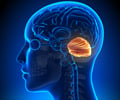Fault in the separation of proteins into small oil-like droplets inside water, in cells may be measured using a novel micropipette technique.

‘Fault in the separation of proteins into small oil-like droplets inside water, in cells may be measured using a novel micropipette technique. This helps in improved understanding of the mechanisms of neurodegenerative diseases and the development of drug treatments.
’





However, there are no well-established methods to quantify the material properties of these protein droplets. The novel technique developed by the study team, efficiently quantifies the surface tension and viscosity (thickness) of protein droplets to help study their material properties and their changes. The Novel Technique
The team used the micropipette technique to accurately measure the biomolecular properties of these protein droplets. This demonstrates a major difference between protein droplets and common liquids.
It was found that the surface tension of protein droplets is thousands of times lower, while their viscosity is thousands of times higher than those of oil or water.
“We can now finally study in a quantitative manner how material properties of protein droplets change during neurodegeneration. We anticipate this technique will be widely applicable and resolve several limitations regarding current approaches. It will open doors for unravelling the mechanisms as well as facilitating therapeutic advances in the treatment of these diseases,” says senior author Zheng Shi, an assistant professor in the Department of Chemistry and Chemical Biology at Rutgers-New Brunswick.
Advertisement
Source-Medindia










